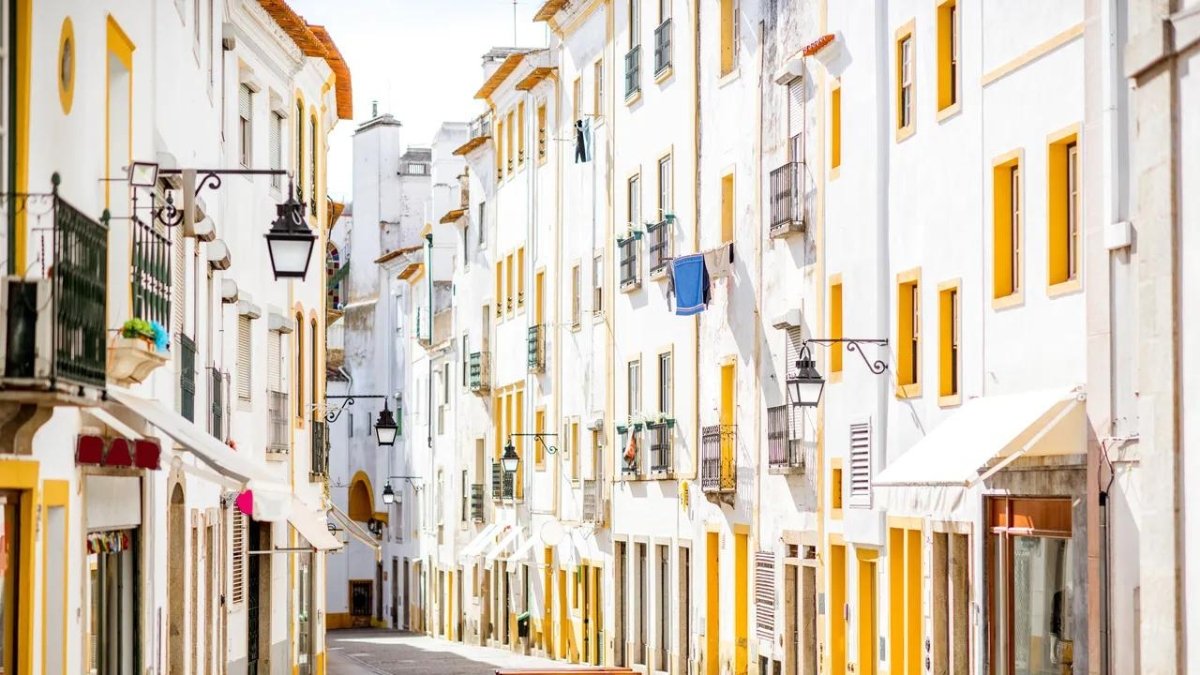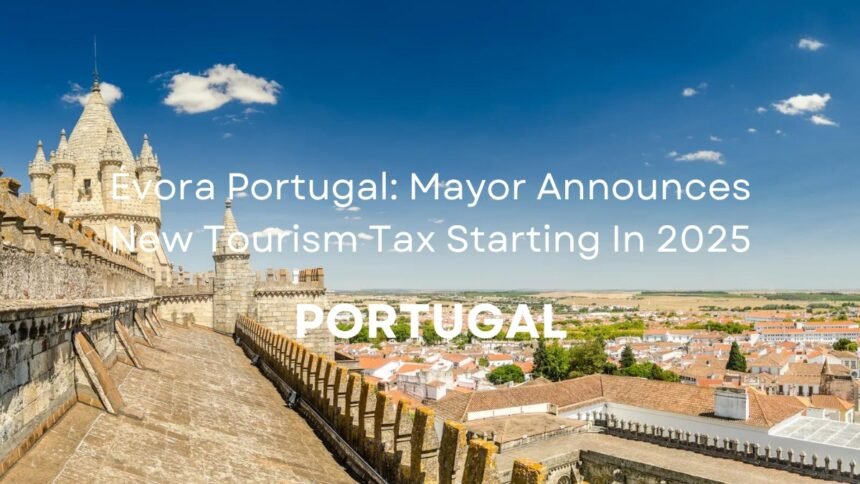The government of Évora is going to establish tourism tax in a beautiful city in the Alentejo region of Portugal. The mayor of Évora has said that the tax is going to implement in the first quarter of 2025. This decision was taken because other Portuguese towns, like Lisbon and Porto, already charge tourists for overnight stays.
Read More About: Portuguese Ambassador Targeted in Pakistan Diplomatic Convoy Explosion
Tourism Tax In Évora

The mayor said that he wanted to complete the decision making process by the end of December 2024. Carlos Pinto de Sá stated:
I would like this process to be concluded in December. If approved, the tourist tax could come into force at the beginning of next year
The local government of Évora wants to discuss with local residents to make sure that the new tax is well considered. The next step is to allow people, local businesses, and tourist agencies to share their opinions.
Establishing a tourist tax policy that is both reasonable and profitable is the objective. The Municipal Committee for Economy and Tourism will also take part in the discussions.
Mayor said:
We will now invite all those who wish to participate to make their contributions, listen to the associations and the Municipal Committee for Economy and Tourism, and we will then draw up a draft regulation based on the contributions
How The Tax Will Benefit Évora
The local council is going to review the suggested rule when it is completed. The council will collect thoughts and opinions and there will then be a session for public discussion. The objective is to complete the tax details before submitting them to the local assembly in December.
The mayor wants to make sure that the tourism tax helps the city in several ways. The tax revenues will be used to pay the expenses of increasing garbage production, tourist advertisement, and cultural preservation.
The mayor said that the new tax will not affect people who live and work in Évora, but only those who visit. Évora’s economy now heavily depends on tourism. The city’s amazing buildings, rich historical history, and UNESCO World Heritage sites attract tourists.
The city’s resources are under pressure due to this increase in tourists. According to Mayor Pinto de Sá, the increased number of tourists has resulted in more trash and a larger demand for public services.
The tourist tax will help to balance the situation by making sure that tourists pay for the city’s infrastructure. The mayor emphasized the importance of protecting Évora’s cultural heritage. He thinks that the tax will bring in additional revenue for historic landmark maintenance.
Exemptions And Benefits
The city plans to give multiple exceptions so that not all tourists will be required to pay the tourist tax. Hospital patients, sports teams, and non-profit organizations staying in Évora will most likely be excluded from the levy. This will enable these organizations to visit Évora without suffering additional financial costs.
Visitors who stay in Évora for more than two or three days are also excluded from the tourism tax. In order to further improve the local economy, the intention is to promote longer stays in the city. If a visitor stays longer, he will spend more money at hotels, restaurants, and local stores.
Increase In Tax Rates

In recent years, the number of visitors visiting Évora has increased dramatically. This tax will have a big influence on the local economy because of the enormous number of tourists. The proposed tourist tax for 2019 was fixed at one euro per night. The city is considering the possibility of charging extra this time.
According to the mayor’s estimation, the city had approximately 700,000 overnight visitors in 2023. Mayor Pinto de Sá noted that other cities in Portugal have already implemented higher taxes. So he is planning to charge more.
The exact amount is still under discussion, but it is expected that the tax will be higher than one euro.
The establishment of a tax system that is reasonable for both locals and tourists is still the top goal as Évora continues with its goals. Mayor Pinto de Sá said that the tourist tax will help the city manage its growing profile while also maintaining its cultural and natural resources.






